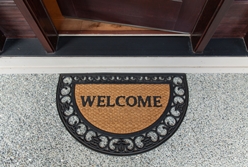
Premises liability law is a way you can hold a business or property owner responsible for your injuries if they were caused by unsafe conditions on the property. While the most common type of accident that falls within premises liability cases is a slip and fall accident, there are many others as well. A few of them include:
- Swimming pool accidents
- Amusement park accidents
- Escalator and elevator accidents
- Negligent security claims
- Dog bites
- Assaults
Why the Type of Visitor You Are Matters in Your Premises Liability Case
The type of visitor you were at the time of your accident is important to your premises liability case. It affects the property owner’s duty to you and could have a huge impact on whether you have a claim under premises liability laws and the amount of compensation you could receive. You could fall within one of four types of legal status:
- Invitee. An invitee is someone invited onto the property, such as friends, family, neighbors, or customers invited to shop at retail stores. The invitation can be express, implied from known and customary use of the property, or inferred by conduct actually known by the owner or his agent. In Georgia, guests of tenants in rental properties are considered business invitees. Invitees are given the greatest protection under premises liability laws, and the owner is required to keep the property reasonably safe for them.
- Licensee. A licensee is a person the business or property owner allows onto the property. Under Georgia law, he is not a customer, servant, or trespasser, has no contractual relationship with the property owner, and is expressly or impliedly allowed onto the property for his own benefit, gratification, or convenience. An example of a licensee would be a salesperson going onto the property to try to sell a service or product. The owner is only liable for willful and wanton injuries. This can translate into a duty to use ordinary care if the property owner knows or has reason to know that a licensee will be in the vicinity of a dangerous condition.
- Social guests. Although invited onto the property, social guests at residences are often considered licensees. However, an exception to this rule could apply. For example, if a business transaction is involved in the social visit you may not be considered a social guest. Property owners owe the same duty of care to other licensees to social guests.
- Trespasser. A trespasser enters onto the property for his own amusement or benefit without the express or implied permission of the property owner. A property owner does not have much of a duty of care to a trespasser. A property owner is only prohibited from preparing pitfalls or mantraps, or willfully or wantonly injuring the trespasser. There is no duty to anticipate the trespasser’s presence or to keep the property safe for him. However, if the owner knows of the trespasser’s presence or should reasonably anticipate it, he has a duty to exercise ordinary care to not injure the trespasser by active negligence.
Special Rules for Recreational Property Owners
Special rules apply to the duty of care when a property owner owns recreational property and allows others to enter the property for public recreational use. If the owner does not charge an admission fee—which is different from a parking lot fee—the owner has very little liability to uses of the property. He has no duty of care to do the following:
- Keep the property safe for use by others
- Give warning of any dangerous condition, structure, or activity on the property
If you were injured on a business or property owner’s property, the laws governing the owner’s liability are complex. You need an experienced premises liability attorney who can help prove the owner breached his duty of care to you and get you the compensation you deserve. Start an online chat or call us toll free at 877-401-6689 today to schedule a free, no-obligation consultation.
Related Links:














